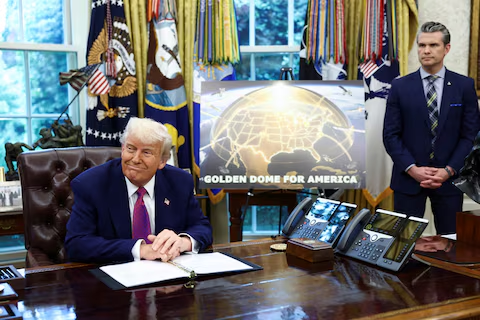WASHINGTON, May 6, 2025 — In a pivotal meeting aimed at mending frayed ties, Canadian Prime Minister Mark Carney met with U.S. President Donald Trump at the White House. This marked their first face-to-face encounter since Carney’s recent election victory, which was largely driven by his commitment to defend Canadian sovereignty and diversify the nation’s economy amid escalating trade tensions with the United States.
During the Oval Office meeting, Carney firmly addressed past remarks by Trump suggesting the annexation of Canada, stating unequivocally, “It’s not for sale, it won’t be for sale – ever.” Despite the gravity of the issues at hand, the meeting maintained a civil tone, with both leaders expressing mutual respect.
Trade discussions were central to the dialogue, particularly concerning the tariffs imposed by the Trump administration on Canadian steel, aluminum, and auto parts. These measures have significantly impacted Canadian exports and strained the economic relationship between the two nations. Carney emphasized the need to revise aspects of the United States-Mexico-Canada Agreement (USMCA), which is scheduled for review in 2026, though he stopped short of calling for a complete overhaul.
President Trump, while praising the existing trade deal, criticized Carney’s predecessor, Justin Trudeau, and former Foreign Minister Chrystia Freeland for their handling of previous negotiations. He reiterated his belief that the U.S. could do without Canadian exports such as cars, energy, and lumber, questioning Canada’s dependence on the U.S. market.
The $760 billion trade relationship between Canada and the United States remains vital. However, Trump’s continued protectionist stance poses challenges. Canadian companies, particularly small and mid-sized firms, are increasingly seeking alternative markets in Asia and Europe to mitigate the risks associated with U.S. trade policy volatility.
Analyst Greg MacEachern commended Carney for his firm yet diplomatic approach during the meeting, noting that he managed to address contentious issues without provoking confrontation. The meeting is seen as a step toward resetting the strained relations between the two countries, though significant hurdles remain.
As both nations navigate the complexities of their economic partnership, the outcomes of this meeting may set the tone for future negotiations and cooperation. The international community will be watching closely to see how Canada and the U.S. reconcile their differences and work toward mutually beneficial solutions.
Source; Reuters

